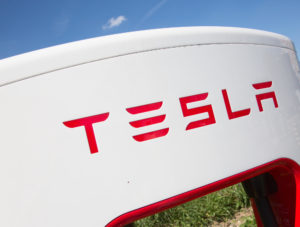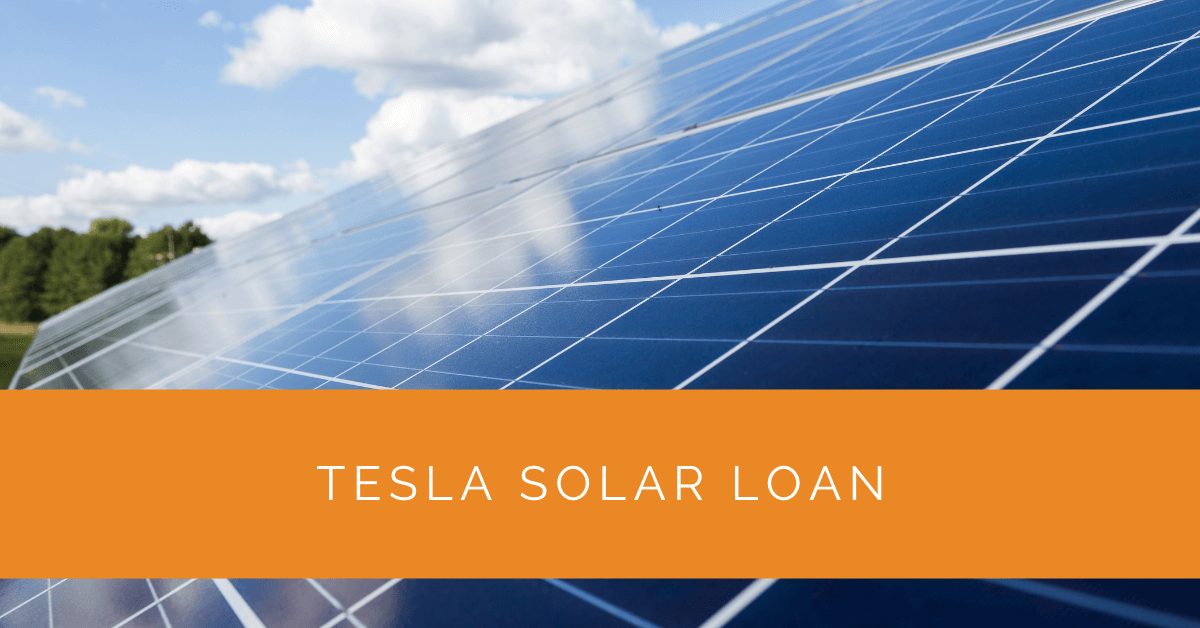Synonymous with cutting-edge electric vehicles, Tesla has also made significant strides in the solar industry. This article delves into the specifics of Tesla’s solar loan, a financing option for homeowners interested in Tesla’s solar panels or solar roofs.
Contents
- 1 Key Takeaways
- 2 Tesla’s Foray into the Solar Industry
- 3 Financing Solar with Tesla
- 4 The Basics of Solar Loans
- 5 Where to Get a Solar Loan
- 6 Diving Deeper into Tesla’s Solar Loan
- 7 Comparing Tesla’s Solar Loan with Other Financing Options
- 8 Exploring Other Financing Options for Tesla Solar Panels
- 9 Tesla’s Solar Loan vs. Cash Purchase
- 10 Is Tesla’s Solar Loan Worth It?
- 11 Expert Insights From Our Solar Panel Installers About Tesla Solar Loans
- 12 Experience Solar Excellence with Us!
- 13 Wrapping Up: Making the Right Solar Decision
Key Takeaways
- Tesla’s solar loan, introduced to make solar energy more accessible, allows homeowners to repay the cost of their solar system over time, with specific terms and interest rates impacting the overall cost and monthly payments.
- While Tesla’s solar loan is competitive with other financing options and does not include dealer fees, homeowners must explore all financing options and consider factors such as customer service before deciding.
- Paying in cash can save homeowners money in the long run. Still, solar loans allow for full ownership of the solar panels and eligibility for state or utility solar incentives, along with the federal tax credit.
Tesla’s Foray into the Solar Industry
Tesla, a brand synonymous with innovation in the electric vehicle industry, has also ventured into solar energy. This bold move was initiated in 2016 following the acquisition of SolarCity, a leading company in the solar industry. Under the leadership of Elon Musk, Tesla began offering solar products, including solar panels and innovative solar roofs. These products have gained considerable traction in recent years, demonstrating Tesla’s ability to disrupt the automotive and energy sectors. However, despite Tesla’s reputation for offering competitive solar installation prices, the upfront cost of installing a solar system can still be a significant investment for many homeowners, making financing options an important consideration.
Financing Solar with Tesla
To make solar energy more accessible and affordable, Tesla introduced its solar loan. This financing option allows homeowners to install Tesla solar panels or a solar roof without having to bear the entire upfront cost at once. Instead, they can repay the cost through manageable monthly payments. The specifics of Tesla’s solar loan, such as the interest rate and term, can significantly impact the overall cost of the solar system and the monthly payment. This makes understanding the loan details crucial for homeowners considering this financing option.
The Basics of Solar Loans
A solar loan allows homeowners to pay for their solar system over time rather than in one lump sum. This can make solar energy more accessible to a wider range of homeowners. To qualify for a solar loan, homeowners typically need to be in good financial standing and have a good credit score. The loan includes an interest rate and dealer fees, which are included in the monthly payment. Interest rates on unsecured solar loans with dealer fees average between 2.99% and 5.99% APR. Understanding these basics can help homeowners decide whether a solar loan is the right choice for them.
Where to Get a Solar Loan
When it comes to financing their solar system, homeowners have several options. These include solar-specific financing providers, personal loans from banks, Property Assessed Clean Energy (PACE) loans, and home equity lines of credit (HELOCs). However, it’s important to note that PACE loans are only available to homeowners in California, Florida, and Missouri. Each option has its advantages and disadvantages, and the best choice will depend on the homeowner’s circumstances and needs.

Diving Deeper into Tesla’s Solar Loan
Tesla’s solar loan has several unique features that set it apart from other financing options. For instance, unlike many other solar loans, Tesla requires a minimum down payment equal to 10% of the system’s total cost. This payment is due after your home is inspected and your utility permits you to Operate (PTO). Tesla offers 10-year- and 15-year loan options, with 6.99% and 7.32% APRs, respectively. The best option depends on your monthly budget and long-term financial goals. Understanding these details can help homeowners decide whether Tesla’s solar loan is the right choice for them.
Comparing Tesla’s Solar Loan with Other Financing Options
When considering Tesla’s solar loan, comparing it with other financing options is important. Tesla’s solar loan is competitive with offerings from other solar financing companies. Unlike traditional solar loans, Tesla’s loan does not include dealer fees, which can add 20% or more to your total financed amount. This means you get the same APR without worrying about an additional 20% or 30% on your cost. However, when comparing, it’s crucial to consider all aspects of the loan, not just the APR.
Exploring Other Financing Options for Tesla Solar Panels
If Tesla’s loan options don’t suit your needs, you can explore other financing methods. Tesla allows homeowners to use third-party financing options when investing in solar panels. You would simply select the ‘cash’ option for payment and pay with your third-party loan after installing the system and passing inspection. This flexibility allows homeowners to choose financing options that suit their financial situation and needs.
Tesla’s Solar Loan vs. Cash Purchase
While financing allows you to spread the cost of your solar system over time, paying in cash can save you money in the long run as you aren’t paying any interest. However, solar loans allow you to retain full ownership of your solar panels, making you eligible for state or utility solar incentives and the federal tax credit. This decides between a solar loan and a cash purchase, a complex one that depends on various factors, including your financial situation and long-term energy goals.
Is Tesla’s Solar Loan Worth It?
When considering whether Tesla’s solar loan is worth it, it’s important to consider various factors. On the surface, Tesla’s solar loan is a competitive financing option, especially considering the current interest rates and dealer fees. However, Tesla Energy’s customer service has been criticized by some homeowners, which is an important factor to consider when making a long-term investment like solar panels. Therefore, getting quotes from multiple installation companies, not just Tesla, is recommended before making a decision. This will allow you to compare the financial aspects of the loan and the quality of service and support you can expect to receive.
Expert Insights From Our Solar Panel Installers About Tesla Solar Loans
Tesla’s solar loan program is a game-changer for homeowners who want to embrace solar energy without the hefty upfront cost. By spreading the payments over time, it becomes much more accessible for a wider range of people. Plus, with Tesla’s reputation for innovation, you’re getting a top-tier product.
Lead Solar Installer
One of the standout features of Tesla’s solar loan is the absence of dealer fees, which can add a significant amount to other solar loans. This transparency in cost structure makes it a very competitive option in the market. Always compare the APR and total cost over the loan term to make an informed decision.
Senior Solar Consultant
Understanding the terms of Tesla’s solar loan is crucial. With options for 10-year and 15-year terms at different APRs, homeowners need to consider their long-term financial goals and monthly budget. It’s about finding the right balance between affordable monthly payments and the total cost of the system.
Solar Financing Expert
Experience Solar Excellence with Us!
Trust in Solar Panels Network USA, where our seasoned experts deliver top-quality solar solutions for homes and businesses nationwide. With a legacy of countless successful installations and a commitment to sustainable energy, we’re your reliable partner in the solar journey. Ready for a brighter, eco-friendly future? Call us now at (855) 427-0058 and harness the power of the sun!
Wrapping Up: Making the Right Solar Decision
Tesla’s solar loan can be a viable option for homeowners looking to install a solar panel or solar roof. It offers the flexibility of lower monthly payments, allowing more homeowners to take advantage of solar energy and potentially lower their electric bills. However, before deciding, it’s important to consider all factors, including interest rates, loan terms, and customer service.
Remember, going solar is not just about choosing a financing option; it’s about making a long-term investment in sustainable energy. Therefore, it’s crucial to research, compare quotes from multiple companies, and make an informed decision that aligns with your financial situation and energy goals. With the right planning and consideration, you can make the transition to solar energy a smooth and rewarding journey.
About the Author
Solar Panels Network USA stands at the forefront of solar energy solutions, driven by a team of seasoned solar engineers and energy consultants. With over decades of experience in delivering high-quality solar installations and maintenance, we are committed to promoting sustainable energy through customer-centric, tailored solutions. Our articles reflect this commitment, crafted collaboratively by experts to provide accurate, up-to-date insights into solar technology, ensuring our readers are well-informed and empowered in their solar energy decisions.

